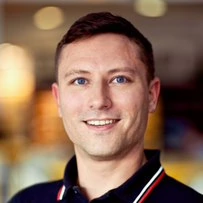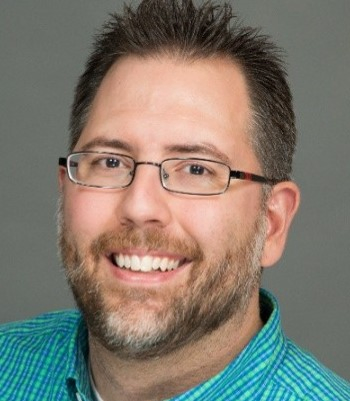Your Tech Talks in 20 Podcast Subscription has been confirmed!
Please be sure to whitelist email@genesys.com to ensure you receive Genesys emails.
July 13, 2022 – Duration 28:30
Retaining top talent is a perpetual challenge for customer experience (CX) leaders. To deliver outstanding customer experiences, you need to keep your best agents. But it’s equally important to retain your technical team, including the software engineers who build and maintain the tools in your CX ecosystem. In this episode, Jason Alley, Senior Director of Product Marketing at Genesys, joins as guest co-host to discuss how one Genesys customer motivated software engineers to drive CX innovation — and found the key to retaining them. Richard Tucker, Software Engineering Manager at OVO Energy Ltd., explains how empowering engineers to solve problems in collaboration with business teams yielded rapid CX innovation. And it differentiated its brand and motivated the development team with quick feedback and satisfying results. Jack Nichols, VP of Product Management for Genesys Cloud rounds out the conversation with insights into how a composable CX ecosystem empowers software engineers and fosters co-creation.
Want to listen more?
Subscribe to our free newsletter and get updates in your inbox on new episodes released each week!
Subscribe to our free newsletter and get new episode updates in your inbox

Richard Tucker
Engineering Manager, Contact Center Product Teams, OVO
Richard Tucker is the Engineering Manager for OVO contact center product teams and is responsible for delivering exceptional customer experiences. Richard has worked in the Technology industry for 19 years, the last nine of which he has spent at OVO.

Jack Nichols
Product Management
Jack Nichols serves as Vice President of Product Management for Genesys Cloud. With more than 20 years of technical and leadership experience, Jack is responsible for the Genesys strategy on platform and ecosystem development. Prior to Genesys, Jack lead the global network and security infrastructure function at BrightPoint (now Ingram Micro). He holds a bachelor’s degree in engineering technology/computer science from Purdue University and, upon graduation, joined E*TRADE Financial where he architected and ran multiple global trading data network infrastructures.
Here are conversation highlights from this episode, slightly edited and condensed.
Go to the timestamps in the recording for the full comments.
Richard Tucker (04:25):
I’ll start from the beginning, very briefly. When we were selecting what our future contact center platform was going to be, one of the deciding factors was that we wanted to have engineering for the contact center in-house, which was new for us. Before that we were relying on those specialist skills from a professional services firm. So, once we Genesys, we put a team around it.
It’s fair to say in the beginning, the software engineers in the team were lukewarm about it. They’d come from what they would consider traditional software engineering and suddenly they were saying things to me like, “Do I do telephony now? Am I, am I telephony admin?”
That was our challenge at the beginning: To convince our software engineers that this is going to be real software engineering. We gave them some training and then let them loose in the developer documentation. And then we started to do the build and started to really explore some of the more advanced sides of it, like Terraforms.
Now we’re at the point where, our engineers are really loving working with the system. They’re writing blog posts about it, and they feel like they’re having real impact in the business, which is a key facet to retaining staff.
Richard Tucker (07:23):
In terms of engineers becoming proficient and skilled in knowing how Genesys works, it took maybe a month, six weeks, something like that. But I’m talking about getting into all of the the nitty gritty; they had a good understanding of how Architect works, how data actions work — just from reading the documentation and playing with the Explorer API. So, I would say they were up-to-speed very quickly.
Richard Tucker (10:27):
One of the things I find exciting about the area we work in and that I try to advocate for within my team\ is that you usually are up against the classic time/cost/quality situation. And something usually has to give. We want our customer satisfaction ratings and NPS to increase. That usually comes at a cost. But we want to increase the efficiency of the contact center, as well.
So, the challenge I set is: Can we deliver a better customer experience for a lower cost — which is the Holy Grail. Engineers enjoy challenges. It motivates them when you give them a hard problem. We’re still on that journey, but we’re having some success already.
Richard Tucker (15:24):
That brings another aspect to the challenge, which is how do you make those all those systems integrate nicely and do things in real time. We’re using Event Bridge and trying to be event-driven in the contact center.
Richard Tucker (17:21):
We, have a sort of internal joke that we see ourselves as a technology company that happens to sell kilowatt hours or happens to sell energy. But it generates a culture of we’re serious about technology and we’re serious about engineering and our engineers’ wellbeing — and that they’re motivated and want to come to work and do their best work every day.
Richard Tucker (20:21):
Technology-first doesn’t mean technology at the expense of everything else. It means take it seriously. We get close to our stakeholders and talk about the problems they want to solve and the opportunities that they’re finding. We work with them to size those up in terms of effort and value. And where the credibility then comes in is that we can get stuff out the door quite quickly.
We could release multiple times a day if we wanted to. We can also roll back quickly if we made a mistake, or we can A/B test so we can come up with a hypothesis. That’s another thing that’s important to note: If you’re in a complex industry, it’s OK not to know the answer and to have a hypothesis that you can test.
Richard Tucker (22:42):
Remote working really has changed everything. You can go work for a company anywhere now, which adds more challenge to retention. We’ve got a great green brand, people that are interested in the environment and green energy and that’s always a draw. But we’re competing not only against the whole of the UK, but potentially jobs in other countries as well. The challenge is greater, and salary isn’t everything.
So, what motivates engineers? The ability to play with new technology and have an impact on the users of the system, on our agents and on their satisfaction scores — because we measure how satisfied they are with the tooling we provide. With cloud we can iterate quickly, which means we can see impacts quickly, which is great for engineers.
Our engineers are dealing with complicated problems and they’re getting feedback quite quickly and they’re seeing the impact that they’re having on both our staff and our customers. And I think when you put all of that together, it makes someone think twice about leaving for another job.
Interested in listening to more Tech Talks in 20? Be sure to check out our podcast page to hear more customer experience-focused topics in bite-size segments!